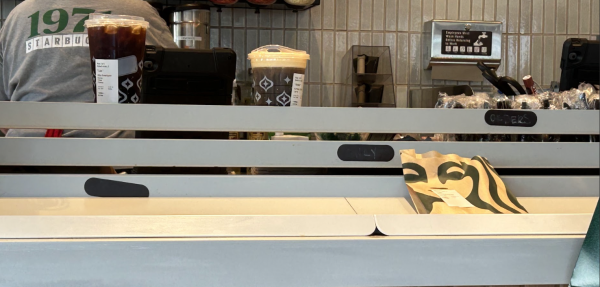Lyrical Losses: How Elliott Smith Portrayed Suicide and Drug Abuse

Elliott Smith performing in New York City, January 2003.
The music industry is riddled with tragedy, artists caught up in the complications of fame, but often the warning signs are overlooked. The instrumental and lyrical content of music is consistently brushed off by the consumer; people don’t “realize songs had lyrics,” misunderstanding lyrics as “nonsense.” But what insight can these lyrics give us into artists’ lives? This article is the first of a series “Lyrical Losses,” where the music of artists’ gone too soon will be dissected.

Elliott Smith’s 2004 song, “A Distorted Reality is Now A Necessity to be Free” begins with a soft acoustic guitar and stripped-down vocals: the epitome of comfort. As the song continues, he grows more passionate. Louder vocals and an increase of harmonies; the song is building its ferocity. The drums bang a little louder each second and the electric guitar rips a piercing note when, finally, the words, “a distorted reality is now a necessity to be free” break the overall serenity and the song erupts into pure passion. At last, liberation.
These raw human emotions, so brilliantly expressed, were articulated by Smith, a ‘90s indie-rock artist notable for his guitar and breathtaking lyricism. While living what seemed to be a glamorous life, Smith struggled heavily with experiences from his past. Smith was physically and emotionally abused by his stepfather until the age of 13, when he moved in with his biological father. At that point, he suffered from depression and looked towards drugs and alcohol to forget about the pain he was feeling. After several nights at rehab, Smith died of suicide in 2003.
Smith’s music is distinct; each song carries a certain message stemming from his own life. His music is typically slow-paced, taking advantage of minor chords for a melancholy sound. Smith’s voice is soft, making his music almost lullaby-esque. The soft and sweet sound of the instrumental is contrasted with Smith’s harsh reality, using metaphors and symbolism in order to tell his story as accurately as possible. Smith creates a clear timeline of his life within his discography. Analyzing the lyrics gives a deeper insight into his life, beginning with his debut album, Roman Candle.
Roman Candle (1994)
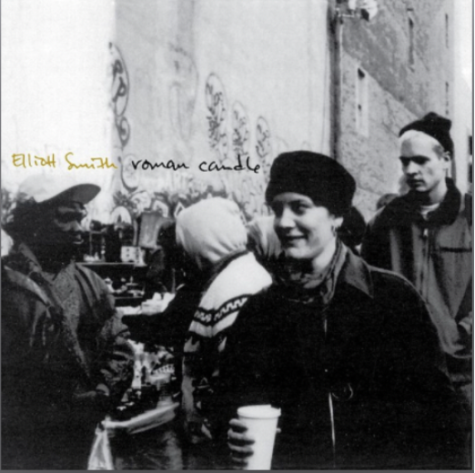
“Last Call”
You’re a crisis, you’re an icicle
You’re a tongueless talker, you don’t care what you say
You’re a jaywalker and you just, just walk away
And that’s all you do
The clap of the fading out sound of your shoes
Made him wonder who he thought that he knew
And I think I’m all done, you can switch me off safely
While I’m lying here waiting for sleep to overtake me
In “Last Call,” Smith sings about being tired of the treatment he has endured. “You’re a crisis, you’re an icicle/You’re a tongueless talker, you don’t care what you say.” He uses incredibly descriptive language in order to convey a simple concept in more detail, the idea that someone has no regard for others.
Smith goes on to say, “You can switch me off safely/While I’m lying here waiting for sleep to overtake me.” The singer objectifies himself, reducing the value of his life while he is “waiting for sleep to overtake (him).” Smith makes several references to escapism and suicidal thoughts throughout his discography.
Elliott Smith (1995)

“Clementine”
They’re waking you up to close the bar
The street’s wet, you can tell by the sound of the cars
The bartender’s singing “Clementine”
While he’s turning around the open sign
“Dreadful sorry, Clementine”
You drank yourself into slow-mo
Made an angel in the snow
Anything to pass the time
And keep that song out of your mind
Smith tells the story of drinking too much and passing out at the bar. The bartender wakes him up, singing the folk song “Oh My Darling, Clementine” while closing up the bar. “Anything to pass the time/And keep that song out of your mind.” Smith wishes he could forget the song he woke up to, potentially insinuating that he wished he could stay asleep forever. Smith references everlasting sleep as a metaphor for death repeatedly.
Either/Or (1997)
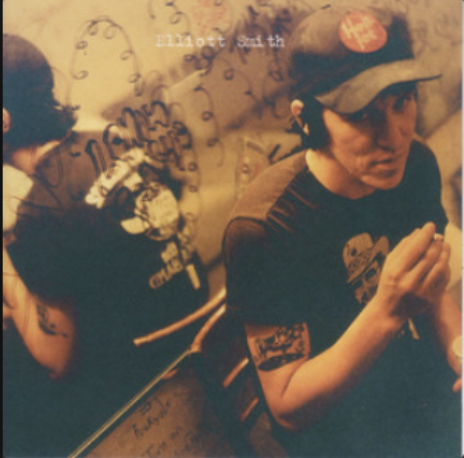
“Pictures of Me”
Here come another guy
Jailer who sells personal hells
Who’d like to see me down on my f—ing knees
Everybody’s dying just to get the disease
In “Either/Or,” we see a certain ferocity and anger never before used by Smith. Tempos increase, the timbre of his voice changes. This is a new side to Smith, marking a new point in his life. In “Pictures of Me” Smith utilizes his excellent word play. A jailer who “cells” personal hells. Smith, referring to people in the industry, depicts them as the jailers selling careers (or personal hells) for lives. They want to see him “down on (his) f—ing knees.”
Smith ends this song with, “Everybody’s dying just to get the disease.” Here, Smith equates fame to a disease. He explains that people will do anything to become famous, but don’t see it as the disease it truly is. Fame only pushed Smith further into his depression and addiction, the disease only getting worse.
“Between the Bars”
Drink up, baby, stay up all night
With the things you could do, you won’t but you might
And I’ll make you okay and drive them away
The images stuck in your head
Keep you apart, deep in my heart
Separate from the rest, where I like you the best
Keep you apart, deep in my heart
Separate from the rest, where I like you the best
“Between the Bars,” Smith’s most famous song, is a truly convincing love story. “Drink up, baby, stay up all night.” The alcohol plays the role of Smith’s temptress, luring him in. The alcohol calls him “baby,” further playing into the role of the seductress.
“I’ll make you okay and drive them away/The images stuck in your head.” Drinking is a quick solution to the pain of remembering. It washes away your past.
“Keep you apart, deep in my heart/Separate from the rest, where I like you best.” Addiction isolates you from your loved ones and leaves you more vulnerable when you no longer have anyone to help you. As reported by several close friends of Smith, those who tried to help him were immediately disregarded, it created distance between them. The closest and most sincere relationships were damaged, never to be repaired.
Figure 8 (2000)
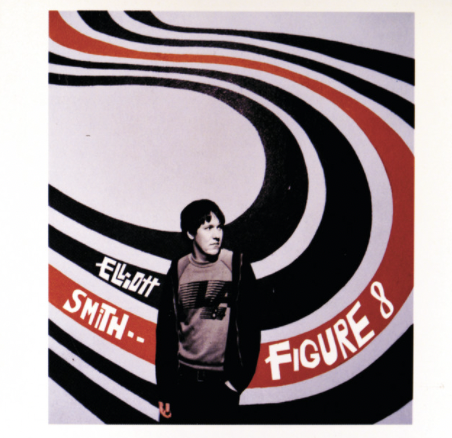
“Happiness”
While her memory worked in reverse
To keep her safe from herself
What I used to be will pass away and then you’ll see
That all I want now is happiness for you and me
What I used to be will pass away and then you’ll see
That all I want now is happiness for you and me
What I used to be will pass away and then you’ll see
That all I want now is happiness for you and me
The song “Happiness” takes the listener through a rollercoaster of emotions, it brings the listener through the aftermath of a traumatic event through the perspective of a couple.
“While her memory worked in reverse/To keep her safe from herself.” Smith describes a common trauma response: the mind chooses to forget what happened in order to protect the individual from emotional pain.
At the end of the story, we finally see genuine hope from Smith. He repeats this sweet, hopeful mantra that the struggling man will finally change and heal, and the couple will finally achieve happiness. “What I used to be will pass away and then you’ll see/That all I want now is happiness for you and me.”
“Stupidity Tries”
Got a foot in the door
God knows what for
And he’ll cut me down to size
Stupidity tries
Everything here is free
Everything but you and me
This painting never dries
Stupidity tries
The enemy is within
Don’t confuse me with him
I couldn’t think of a thing
That I hope tomorrow brings
Oh, what a surprise
Stupidity tries
Smith is trying to take a step towards sobriety, but ultimately finds that “stupidity tries.”
“Got a foot in the door.” A genius double entendre. Smith has a foot in the door towards sobriety, he’s finally ready to get clean. However, Smith also has a foot in the door towards death. At this point in his life, Smith was fighting to get clean. He had spent a few nights and rehab and really pushed to become a better person, as displayed in his music. But becoming sober proved to be far more difficult and gruesome than anticipated. After many interventions and nights at rehab, Smith can’t be freed from his addiction. Smith acknowledges how he’s been treating those around him, but perfectly depicts the monster that addiction is. He is not a bad person, it’s the addiction controlling him.
The final verse.”I couldn’t think of a thing /That I hope tomorrow brings.” Smith has lost hope, no longer looking forward to another day.
Three years after the release of “Figure 8” Smith passed away. His last album, “Basement On a Hill” was released posthumously.
From a Basement On the Hill (2004)
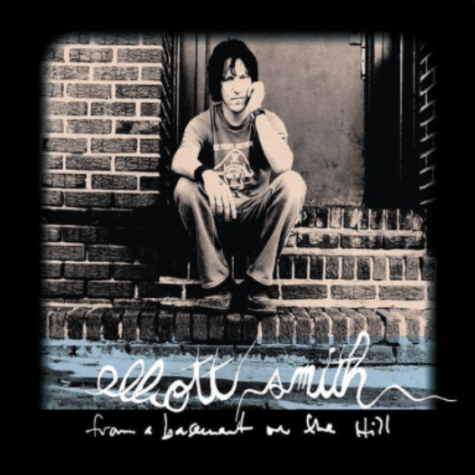
“Coast to Coast”
I’ve got no new act to amuse you
I’ve got no desire to use you, no
But anything that I could do
Would never be good enough for you
Still you’re keeping me around
‘Til I finally drag us both down (Gonna drag us both down)
Pulling feathers out your hat (Throwing feathers out your hat)
“Coast to Coast” explains Smith’s final moments in his life and career. Smith was done, he felt he could no longer benefit the lives of those around him because he would never be good enough. The common phrase, “a feather in my cap,” meaning an achievement, is completely flipped by Smith. “Pulling feathers out your hat” is Smith removing someone’s accomplishments and credibility, dragging them down. Smith could possibly be referring to his addiction unintentionally destroying the reputation of the people around him, especially considering how easy it is to make assumptions about people we know nothing about.
“You’re keeping me around /’Til I finally drag us both down.” Smith doesn’t understand why his friends are trying to change him when he knows things will only get worse for everyone. He knows what his addiction will lead to, and how it will ultimately hurt everyone around him.
Elliott Smith was a man of great talent, a true poet and lyricist. A quick look at Smith’s lyrics gives incredible insight into who Smith really was, and how deeply he was suffering.
Lyrics are more than simply the words of a song, but rather a window into an artist’s life. Writing is an outlet used by artists struggling in the music industry to cope with whatever they may be suffering from.

Haley Kohanarieh is a junior at Milken Community High School, and this is her first year with The Roar. Journalism presents the opportunity to express...











